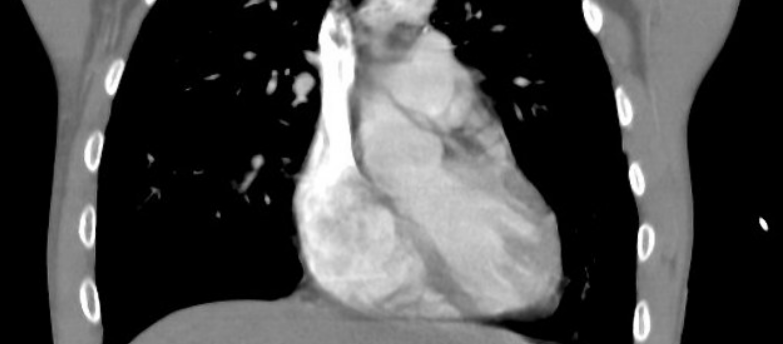Alagille Syndrome: What’s it and what should I expect, if I have it?
Alagille syndrome is a rare genetic disorder that affects multiple organ systems in the body, primarily the liver, heart, and kidneys. Understanding this condition is crucial for timely diagnosis and treatment. In this article, we will explore Alagille syndrome in detail, including its causes, symptoms, diagnostic methods, treatment options, and answers to frequently asked questions.
GENETIC
Rishwin A R
1/26/20252 min read


What is Alagille Syndrome?
Alagille syndrome is a genetic condition caused by mutations in the JAG1 or NOTCH2 genes. It primarily affects the bile ducts in the liver, leading to liver damage and other systemic complications. This syndrome typically presents during infancy or early childhood but may vary in severity.
Causes of Alagille Syndrome
Alagille syndrome is an autosomal dominant genetic disorder, which means a mutation in just one copy of the affected gene can cause the condition. Here are the primary causes:
Gene Mutations: Mutations in the JAG1 or NOTCH2 genes disrupt the Notch signaling pathway, essential for normal organ development.
Hereditary Factors: About 30-50% of cases are inherited from a parent with the condition, while the rest arise from spontaneous mutations.
Symptoms of Alagille Syndrome
The symptoms of Alagille syndrome can vary widely, even among family members. Key signs include:
1. Liver-Related Symptoms
Cholestasis: Reduced bile flow causing jaundice, pale stools, and dark urine.
Itching: Persistent pruritus due to bile salt accumulation.
Hepatomegaly: Enlarged liver, often accompanied by spleen enlargement.
2. Heart Problems
Congenital heart defects, such as pulmonary artery stenosis or tetralogy of Fallot.
3. Facial Features
Distinctive facial characteristics: broad forehead, deep-set eyes, pointed chin.
4. Skeletal Abnormalities
Butterfly-shaped vertebrae visible on X-rays.
5. Other Symptoms
Growth delays and failure to thrive.
Kidney and eye abnormalities.
Increased risk of vascular complications.
Diagnosis of Alagille Syndrome
Diagnosing Alagille syndrome involves a combination of clinical evaluation and genetic testing. Key steps include:
Physical Examination: Identifying characteristic facial features and signs of liver or heart issues.
Blood Tests: Checking liver function and bile acid levels.
Imaging Studies:
Liver ultrasound to detect bile duct abnormalities.
X-rays for skeletal anomalies.
Genetic Testing: Confirming mutations in the JAG1 or NOTCH2 genes.
Treatment Options for Alagille Syndrome
While there is no cure for Alagille syndrome, treatments focus on managing symptoms and preventing complications. Here are the primary approaches:
1. Liver Management
Medications: Ursodeoxycholic acid to improve bile flow and reduce itching.
Nutritional Support: Fat-soluble vitamin supplementation (A, D, E, K).
Liver Transplant: For severe liver damage or cirrhosis.
2. Heart Care
Surgical intervention for structural heart defects, if necessary.
3. Symptom Control
Antihistamines or rifampin to manage itching.
Regular monitoring and treatment of growth and developmental issues.
Living with Alagille Syndrome
Coping with a chronic condition like Alagille syndrome can be challenging, but early intervention and multidisciplinary care can significantly improve the quality of life. Support groups, counseling, and patient education are valuable resources for families managing this condition.
Frequently Asked Questions
1. Can Alagille syndrome be prevented?
Unfortunately, Alagille syndrome cannot be prevented, as it is a genetic condition. Genetic counseling can help families understand their risks.
2. Is Alagille syndrome life-threatening?
The severity varies, but timely treatment can manage symptoms and improve life expectancy.
3. What is the life expectancy of someone with Alagille syndrome?
With advancements in medical care, individuals can live into adulthood, although this depends on the severity of organ involvement.
4. Can Alagille syndrome affect adults?
Yes, adults may experience complications like liver failure or heart issues if the condition was undiagnosed or untreated during childhood.
5. Are there any support groups for Alagille syndrome?
Yes, organizations like the Alagille Syndrome Alliance provide resources and support for patients and families.
Syndromes.xyz
Explore medical syndromes and their details here.
For Educational purposes only
The information on this site is not in any way, replacement for professional advice. Always consult your physician regarding personal queries
Connect
Support
syndromesxyz@gmail.com
© 2024. All rights reserved.
